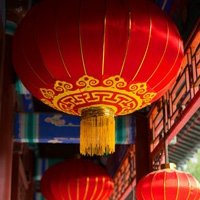1. The prototype of this song is actually a clock. Zhong Yi, a native of Chu in the Spring and Autumn Period, is the earliest ancient zither player recorded in history and has been a court zither player for generations. When Chu and Zheng fought in the Spring and Autumn Period, Zhong Yi of Chu was captured by Zheng and presented to Jin.
2. When Duke Cheng of Jin died in the ninth year, Duke Jing of Jin succeeded to the throne and visited the army. He met him. Duke Jing of Jin asked, "Who is the man who was tied up and wore the hat of the State of Chu?" Zhong Yi said, "A prisoner of the State of Chu." Duke Jing asked again, "What's your surname?" Zhong Yi said, "My father is the Qin minister of the State of Chu." Duke Jing ordered his men to untie the clock, give him a piano, and order him to play, He plays Southern Chu tunes. King Jing asked, "What kind of person is the King of Chu?"
3. Zhong Yi said, "When the king was the crown prince, a eunuch taught him and served him. When he got up in the morning, he played like a child and slept at night. I don't know anything else." Fan Wenzi said to King Gong, "This prisoner of Chu is really a great gentleman.". He did not say his name but his father, which is not forgetful; Playing the piano only plays the music of Chu, which is not forgetting the past; When asked about the king, he only talked about the childhood of the king of Chu, which was selfless; He only said that his father was a minister of Chu, which showed his respect for the King of Chu. It is benevolence not to forget the origin, faith not to forget the past, loyalty and respect for the monarch.
4. He has these four virtues, and he must be able to do a great job. So Duke Jing of Jin treated him with courtesy to foreign envoys. In order to promote peace between the two countries, he asked him to return to Chu to negotiate peace. Zhong Yi was called Side Gong, and later generations used it as a hall name to worship their ancestors.










